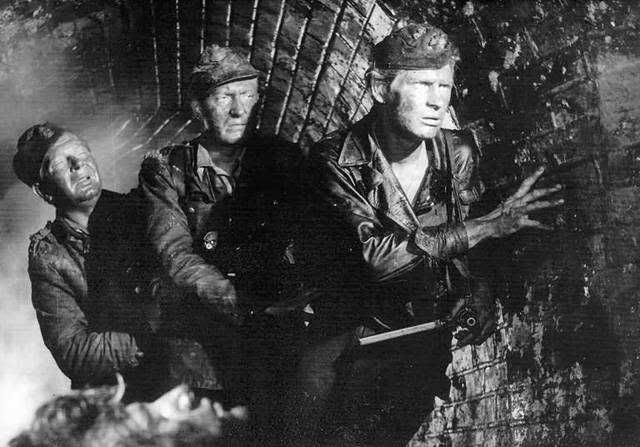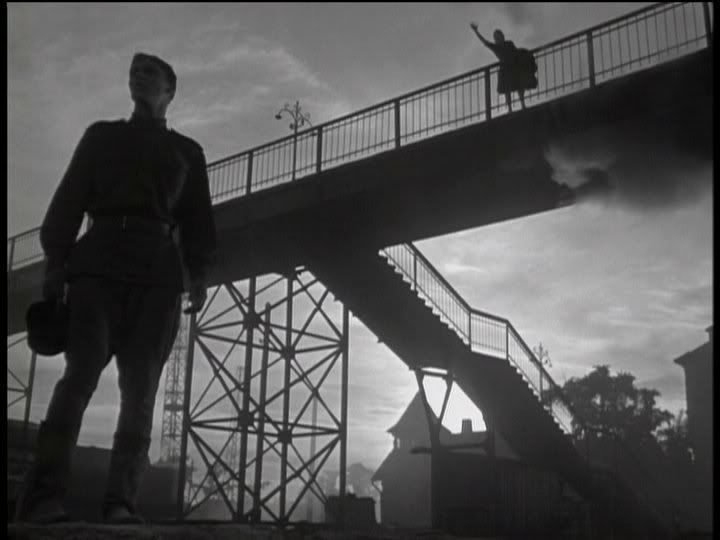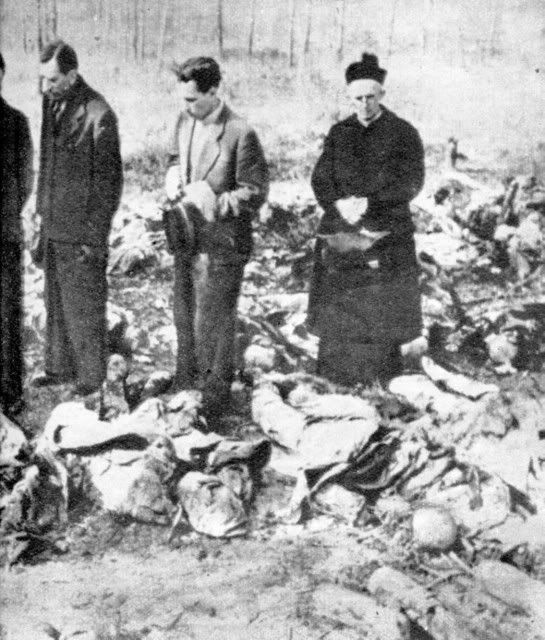It seems for me my dear honorable Librarian that you mean the famous 1930’s soviet song the “March of red aviators” or " the higher, higher and higher" ( “все выше, выше и выше”). This soviet march was copied from the Nazy anthem " The song of Horst Vessel". The ONLY difference was the words. The germans sing "Main Fuhrer, Main Fuhrer, Main Fuhrer… But i know for the sure that the many other early soviets songs had the Germans roots. Have i guess?
Well, not exactly, my dear Comrade Исаев… oh, pardon me - I mean my dear Standartenfuhrer von Stirlitz. This time you have overlooked that tiny remark socially intonated marching song. 
BTW – I was really impressed with that deeply inspiring avatar you have here. My God, when was that? Yes… back there in 1977! You know, my dear Mr. Chevan, when that magnificent Soviet TV serial (Семнадцать мгновений весны - Seventeen Moments of Spring) was aired, streets were completely empty! Literally! The only similar situation I remember happened 6 years before, when that magnificent Bonanza-gallop across the screens of our TV sets in those long, usually busy Saturday afternoons, made my little home town as empty as an desert road . Yes, those were the days, my friend…
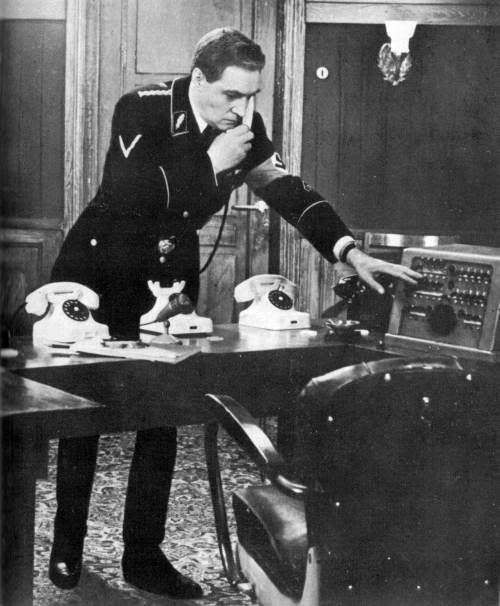
Seventeen Moments of Spring
But never mind that – we have to concentrate on our main theme: that aforementioned mysterious marching song. You see, my dear Mr. Chevan, although there is no decisive agreement about the origins of national socialism in Germany, there can be no doubt that actually aforesaid political movement was a specific response to the most severe economic crisis in the XX century, greatly reinforced by the appeal to tradition and history. It sounds unusual, but Nazism was able to appear both revolutionary and traditional. The ideas of a national form of socialism, appealing to national unity against the Marxist doctrine of class struggle, and of a revolutionary dynamism under a charismatic leader, were grafted on to ideas of racial superiority, territorial expansion, and martial spirit, which went far back into the German past. The graft, however, was not wholly successful – the different parts were not completely absorbed into one another – but still the result was a stronger and tenacious economic growth.
It was through an alliance between the revolutionary and the conservative that Hitler and NSDAP came into power in Germany. Often neglected fact, however, is the verity that the original program of the National Socialist German Worker’s Party - adopted in 1920 – was socially very radical: it demanded action against big industries and department stores, the expropriation of land needed for national purposes (hence its appeal in rural areas!), the abolition of unearned income and ground rents. The manifesto went on to declare that the state’s first responsibility was to uphold the livelihood of its citizens, and that all citizens should have equal rights and responsibilities within the state. It also stated that jobs should be acquired by merit, not patronage or favoritism, that large business should be nationalized, with workers entitled to a share in their profits. It also called for improvements in the education system and in maternity benefits, tougher penalties for criminals, and carried a guarantee of religious freedom – with one ominous exception: no Jew was to be allowed German citizenship!
Other clauses included the German’s people right to Lebensraum, in which the population could expand to fulfill its “God given destiny” (whatever that means), that non-citizens (read: Jews and Gypsies!) should be ineligible for state-provided benefits, and an immediate halt to all non-German immigration.
For all that NSDAP desperately needed an appealing marching song, an composition with a sufficiently harmonic rhythm and melodic gesture, also equipped with a strong resemblance to the socialy conveyed tradition of common effort, and NSDAP did not hesitate to borrow extensively from their main opponents – Communists.
The answer was an poetic adaptation of a popular worker’s song Brüder zur Sonne, zur Freiheit, a song indeed written by a Russian Leonid P. Radin (“Смело, товарищи, в ногу”) in 1897, and originally transferred to Germany via translation of Russian verses, undertaken by an distinguished member of the SPD, Mr. Hermann Scherchen back there in 1918. However, officially recognized version that the melody was composed by the German conductor Hermann Scherchen, who was a Russian POW during the World War I, and who supposedly brought this song to Germany was wrong – legally protected musical composition was actually composed in 1927. by a popular Viennese composer Fred Raymond, who also have had arranged some other highly popular wartime melodies, including renowned ‘Es geht alles vorüber, es geht alles vorbei’ (‘Everything Will Come to Pass’, 1942) and who was paid by NSDAP to do the job!

SA Rally, Berlin 1936
This variant of the old worker’s song, known as “Brüder in Zechen und Gruben - Brothers in the pits and mines” has been officially issued in 1928 and mentioned in a textbook named “Arbeit fürs Volk”, arranged by M. Biebler-Willnich, as well as printed in a music sheet collection “Marschlied der Kameraden” printed by Ernst-Erich Buder in 193. In 1935. the Führungsstab of the SA Oberbayern officially declared this composition as Marschlied – Marching song of the SA units - the song with a vibrant melody and an easy-to-learn/sing text that could be sung at the end of a meeting or a march, as well as the direct counterbalance to the popular “Brüder zur Sonne, zur Freiheit” of the Communists.
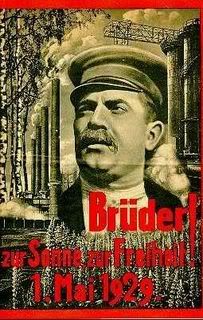
Brüder zur Sonne, zur Freiheit
The irony of fate, however, was embedded within the verity that this song was also adopted in its new, more appealing form by the coursed Red Devils, and subsequently disseminated with its old, socialist text as an international symbol of the proletariat struggle all over the world.
Nowadays this magnificent piece of musical history is available in more than 50 variants. The first one is, of course, the Russian variation:
“Смело товарищи в ногу,
Духом окрепнем в борьбе.
В царство свободы дорогу,
Грудью проложим себе.”
http://english.sovmusic.ru/download.php?fname=vnogu
And here we have the original, NSDAP version of the very melody:
http://www.thepaganfront.com/brangolf/sounds/Bruder%20in%20zechen%20und%20gruben.mp3
Another, indeed beautifully orchestrated version is this Czech, Largo e molto maestoso interpretation of The Worker’s Oratorium.
http://download.sovmusic.ru/m/vnogu_cz.mp3
We have the Hungarian variant too:
http://download.sovmusic.ru/m/vnogu_hu.mp3
And, believe or not, even the Yougoslav rendition of the same song:
http://www.slobodnajugoslavija.com/sound/pjistokizapad.mp3
Enjoy!
Oops, almost forgot something – sorry my dear Mr. Chevan, but I am a little bit confused: you see, there is no musical resemblance between the ''Horst Wessel Lied" (also know as “Die Fahne Hoch” - composed by SA-Mann Horst Wessel, seemingly in March of 1929) and that beautiful March of the Stalin’s Aviation composed by Ю.Хайта, text by П.Герман . Please, compare those melodies yourself:
Beautiful military March of the Stalin’s Aviation
http://download.sovmusic.ru/m/marshair.mp3
… and also musically highly impressive Kampflied - the '‘Horst-Wessel-Lied’
http://www.ingeb.org/Lieder/diefahne.html
Perhaps there was some mistake when you typed that text of yours?
And now dear mst Librarian - the little exercise for your experienced brain
What the NAzy march was in the basis of the one of Israeli armies anthems?
The little addition.
This is the Israeli anthem"Tanks makes the history" (Shirjon ose istoria)
Fairly and sqarely - I am defeated, my dear Mr. Chevan! Alas, I have no idea -please, enlighten me!
Good luck our amazing serbiam friend.
Большое спасибо!
Заскочивши на минутку,
Задержалась не на шутку…
Быстро ляпаю ответ:
Всей России - привет, привет, привет!!!










